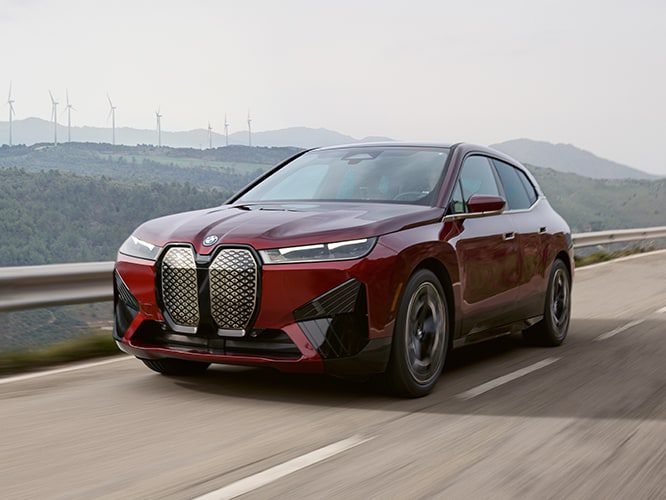BMW broke its previous electric vehicle sales record in the U.S. as overall sales rose 8% year-over-year during the third quarter.
From July through September, the German automaker recorded total sales of 91,849 vehicles, including 7,900 units from its Mini lineup and 13,079 EVs. Electric vehicle sales rose by 202% from the prior year period, setting a new yearly and quarterly record. Since January, the brand has sold 254,363 units in the U.S., an increase of 10% from the same point in 2022.
BMW currently carries three electrified models: the i4 and i7 sedans and the iX SUV. The automaker’s electric vehicle sales accounted for 15.6% of its total sales volume in the third quarter, also a new record. The iX scored 5,541 sales, the most out of the company’s EV lineup, while the i4 and i7 achieved sales of 7,358 combined. Although Mini also carries an EV, BMW did not report electrified sales for the brand.
The surge in BMW’s electric vehicle sales underlines the relatively rapid growth of the market in the U.S. Although EV sales continue to underwhelm both automakers and dealers who had hoped for more demand, the segment has continued to mature without any signs of stagnating. The fact that BMW’s electrified models performed so well in 2023 is especially interesting, considering that the brand’s lineup has not consistently qualified for the Biden Administration’s $7,500 EV tax credit. In early 2024, BMW electric vehicles may lose access to this credit for a longer period of time due to a further tightening of the government’s domestic sourcing stipulation. It will be interesting to see if the brand can continue to drive demand for its lineup in the U.S. into the new year, assuming its models no longer qualify. That being said, customers who can afford a BMW may not be as concerned about the incentive as others.




